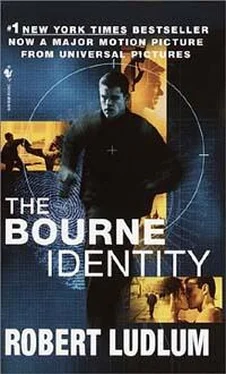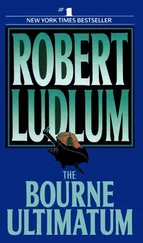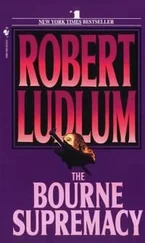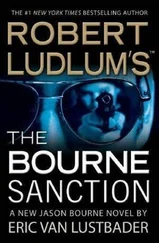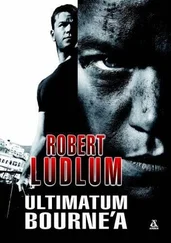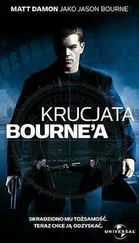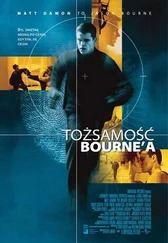“You see the relationship, don’t you? You’re politically—geopolitically—receptive.”
“Or I have a perfectly normal working knowledge of current events. I don’t think I was ever a diplomat. The money at the Gemeinschaft would rule out any kind of government employment.”
“I agree. Still, you’re politically aware. What about maps? You asked me to buy you maps. What comes to mind when you look at them?”
“In some cases names trigger images, just as they did in Zurich. Buildings, hotels, streets … sometimes faces. But never names. The faces don’t have any.”
“Still you’ve traveled a great deal.”
“I guess I have.”
“You know you have.”
“All right, I’ve traveled.”
“How did you travel?”
“What do you mean, how?”
“Was it usually by plane, or by car—not taxis but driving yourself?”
“Both, I think. Why?”
“Planes would mean greater distances more frequently. Did people meet you? Are there faces at airports, hotels?”
“Streets,” he replied involuntarily.
“Streets? Why streets?”
“I don’t know. Faces met me in the streets … and in quiet places. Dark places.”
“Restaurants? Cafés?”
“Yes. And rooms.”
“Hotel rooms?”
“Yes.”
“Not offices? Business offices?”
“Sometimes. Not usually.”
“All right. People met you. Faces. Men? Women? Both?”
“Men mostly. Some women, but mostly men.”
“What did they talk about?”
“I don’t know.”
“Try to remember.”
“I can’t. There aren’t any voices; there aren’t any words.”
“Were there schedules? You met with people, that means you had appointments. They expected to meet with you and you expected to meet with them. Who scheduled those appointments?
“Someone had to.”
“Cables. Telephone calls.”
“From whom? From where?”
“I don’t know. They would reach me.”
“At hotels?”
“Mostly, I imagine.”
“You told me the assistant manager at the Carillon said you did receive messages.”
“Then they came to hotels.”
“Something-or-other Seventy-One?”
“Treadstone.”
“Treadstone. That’s your company, isn’t it?”
“It doesn’t mean anything. I couldn’t find it.”
“Concentrate!”
“I am. It wasn’t listed. I called New York.”
“You seem to think that’s so unusual. It’s not.”
“Why not?”
“It could be a separate in-house division, or a blind subsidiary—a corporation set up to make purchases for a parent company whose name would push up a negotiating price. It’s done every day.”
“Whom are you trying to convince?”
“You. It’s entirely possible that you’re a roving negotiator for American financial interests. Everything points to it: funds set up for immediate capital, confidentiality open for corporate approval, which was never exercised. These facts, plus your own antenna for political shifts, point to a trusted purchasing agent, and quite probably a large shareholder or part owner of the parent company.”
“You talk awfully fast.”
“I’ve said nothing that isn’t logical.”
“There’s a hole or two.”
“Where?”
“That account didn’t show any withdrawals. Only deposits. I wasn’t buying, I was selling.”
“You don’t know that; you can’t remember. Payments can be made with shortfall deposits.”
“I don’t even know what that means.”
“A treasurer aware of certain tax strategies would. What’s the other hole?”
“Men don’t try to kill someone for buying something at a lower price. They may expose him; they don’t kill him.”
“They do if a gargantuan error has been made. Or if that person has been mistaken for someone else. What I’m trying to tell you is that you can’t be what you’re not! No matter what anyone says.”
“You’re that convinced.”
“I’m that convinced. I’ve spent three days with you. We’ve talked, I’ve listened. A terrible error has been made. Or it’s some kind of conspiracy.”
“Involving what? Against what?”
“That’s what you have to find out.”
“Thanks.”
“Tell me something. What comes to mind when you think of money?”
Stop it! Don’t do this! Can’t you understand? You’re wrong. When I think of money I think of killing. “I don’t know,” he said. “I’m tired. I want to sleep. Send your cable in the morning. Tell Peter you’re flying back.”
It was well past midnight, the beginning of the fourth day, and still sleep would not come.
Bourne stared at the ceiling, at the dark wood that reflected the light of the table lamp across the room. The light remained on during the nights; Marie simply left it on, no explanation sought, none offered.
In the morning she would be gone and his own plans had to crystallize. He would stay at the inn for a few more days, call the doctor in Wohlen and arrange to have the stitches removed. After that, Paris. The money was in Paris, and so was something else; he knew it, he felt it. A final answer; it was in Paris.
You are not helpless. You will find your way.
What would he find? A man named Carlos? Who was Carlos and what was he to Jason Bourne?
He heard the rustle of cloth from the couch against the wall. He glanced over, startled to see that Marie was not asleep. Instead, she was looking at him, staring at him really.
“You’re wrong, you know,” she said.
“About what?”
“What you’re thinking.”
“You don’t know what I’m thinking.”
“Yes, I do. I’ve seen that look in your eyes, seeing things you’re not sure are there, afraid that they may be.”
“They have been,” he replied. “Explain the Steppdeckstrasse. Explain a fat man at the Drei Alpenhäuser.”
“I can’t, but neither can you.”
“They were there. I saw them and they were there.”
“Find out why. You can’t be what you’re not, Jason. Find out.”
“Paris,” he said.
“Yes, Paris.” Marie got up from the couch. She was in a soft yellow nightgown, nearly white, pearl buttons at the neck; it flowed as she walked toward the bed in her bare feet. She stood beside him, looking down, then raised both her hands and began unbuttoning the top of the gown. She let it fall away, as she sat on the bed, her breasts above him. She leaned toward him, reaching for his face, cupping it, holding him gently, her eyes as so often during the past few days unwavering, fixed on his. “Thank you for my life,” she whispered.
“Thank you for mine,” he answered, feeling the longing he knew she felt, wondering if an ache accompanied hers, as it did his. He had no memory of a woman and, perhaps because he had none she was everything he could imagine; everything and much, much more. She repelled the darkness for him. She stopped the pain.
He had been afraid to tell her. And she was telling him now it was all right, if only for a while, for an hour or so. For the remainder of that night, she was giving him a memory because she too longed for release from the coiled springs of violence. Tension was suspended, comfort theirs for an hour or so. It was all he asked for, but God in heaven, how he needed her!
He reached for her breast and pulled her lips to his lips, her moisture arousing him, sweeping away the doubts.
She lifted the covers and came to him.
She lay in his arms, her head on his chest, careful to avoid the wound in his shoulder. She slid back gently, raising herself on her elbows. He looked at her, their eyes locked, and both smiled. She lifted her left hand, pressing her index finger over his lips, and spoke softly.
“I have something to say and I don’t want you to interrupt. I’m not sending the cable to Peter. Not yet.”
Читать дальше
